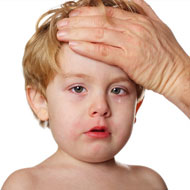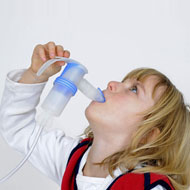- Toddler Measles Symptoms
- Toddler Flu Treatment
- Toddler Flu Symptoms
- Toddler Stomach Flu Symptoms
- Toddler Hair Loss
- Toddler Urinary Tract Infection Symptoms
- Toddler Tonsillectomy Recovery
- Toddler Periorbital Cellulitis
- Toddler Vomiting and Diarrhea
- Types of Toddler Vomiting
- Toddler Vomiting Treatment
- Toddler Cough Vomit
- Toddler Dandruff
- Toddler Bowlegs
- Toddler Eye Infection
- Toddler Pink Eye
- Toddler Pink Eye Symptoms
- Toddler Eye Problems
- Toddler Hearing Loss Signs
- Symptoms Of Pinworms In Toddlers
- Toddler Blood Infection
- Toddler Motion Sickness
- Toddler Labial Adhesion
- Lyumphoma in Toddlers
- Toddler Scabies
- Toddler Pinworms
- Toddler Insect Bites
- Toddler Meningitis
- Toddler Moles
- Toddler Lyme Disease
- Toddler Nosebleeds
- Toddler Ingrown Toenail
- Toddler Lead Poisoning
- Toddler Hair Loss Alopecia Areata
- Toddler Heat Stroke
- Toddler Rubella
- Toddler Tonsillectomy
- Toddler Iron-Deficiency Anemia
- Toddler Tooth Discoloration
- Toddler Concussion
- Toddler Psoriasis
- Toddler Sunburn
- Toddler Tongue Blisters
- Toddler Impetigo
- Toddler Blepharitis
- Toddler Burns
- Toddler Burn Treatment
- Toddler Eczema Face
- Toddler Eczema Symptoms
- Toddler Urinary Tract Infection
- Toddler Boy Urinary Tract Infection
- Toddler Epilepsy
- Toddler Epilepsy Symptoms
- Toddler Walking Pneumonia
- Toddler Yeast Infection Symptoms
- Toddler Frostbite
- Toddler Hand Foot And Mouth Disease
- Toddler Dry Scalp
- Toddler Dry Skin
- Toddler Strep Throat
- Toddler Strep Throat Symptoms
- Toddler Sore Throat
- Toddler Mumps
- Toddler Bacterial Infection
- Shaken Baby Syndrome
- Shaken Baby Syndrome Symptoms
- Toddler Tonsillitis
- Toddler Eye Discharge
- Toddler Fifth Disease
- Toddler Febrile Seizures
- Toddler Food Poisoning
- Toddler Gingivostomatitis
- Toddler Stomach Ache
- Toddler Warts
- Toddler Tuberculosis
- Toddler Torticollis
- Toddler Tick Bites
- Toddler Ear Infection Remedies
- Toddler Ear Infection Symptoms
- Toddler Ear Infection Signs
- Toddler Concussion Signs
- Toddler Bronchitis
- Toddler Colds
- Toddler Chicken Pox
- Toddler Appendicitis
- Toddler Asthma
- Toddler Birthmarks
- Toddler Strabismus
- Toddler Wheezing
- Toddler Sprains
- Toddlers Tinea Versicolor
- Toddler Viral Infection
- Toddler Yeast Infection
- Toddler Hives
- Toddler Canker Sores
Signs of Mono In Toddlers & Remedies
Toddler Mononucleosis or mono is mostly caused by the Epstein-Barr virus or EBV. EBV is a type of herpes virus and is associated with specific cancers in China and Africa as it causes infectious mononucleosis. However, other viruses too may cause mono. Once affected by this virus, the body develops immunity to it and chances of contracting mono again are very rare.
However, the virus remains part of the person's body for the rest of his or her life and he or she could infect others with the virus at any time. Children and especially toddlers may pick up this virus while playing with other children affected by the virus. A lot of toddlers like to put things into their mouth.
. this too is another easy way in which toddlers are exposed to the virusu Sharing utensils with an infected person or being in the path of a person infected by mono when he or she sneezes are other ways in which mono is spreada Mono mostly affects teenagers and that's why it is often also known as the "kissing virus"t
Symptoms of Mononucleosis in Toddlers
For children, symptoms include fever, a feeling of tiredness, loss of appetite, skin rashes, etct Some children may also develop swollen lymph nodes and an enlarged spleen, which are detected only after a thorough physical examinationo Symptoms are usually noticeable four weeks after contracting the virusu However, most toddlers will remain asymptomatic, displaying little or no symptoms at alll Mononucleosis in toddler can be detected by looking at peripheral blood smear samples and examining them for any increase in atypical lymphocytese
Doctors will not normally test a toddler for mono unless convinced that the child was exposed to the virusu
Treatment for Mononucleosis in Toddlers
There is no treatment for mononucleosis in toddlers, because this virus does not react to any antibioticsc However, the toddler should be made to feel comfortable, given plenty of rest, fluids and fever reducing medicationsn Prevention is often the best care for eliminating this virusu Teach children to avoid sharing cups and utensils with others and also maintain good hygiene and hand washing habitst Don't allow the child to lift heavy objects or play too much, because mono causes the spleen to swelll There is a risk of rupture if the child receives a blow while playingn Recovery from mononucleosis in a toddler takes months, but is important to avoid complications from occurring, such as: liver inflammation, jaundice, and swollen tonsilsl In rare cases mono can affect other organs such as the central nervous system or the heartr
p

